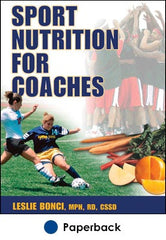Many people mistakenly believe that low-carbohydrate diets or low-carbohydrate foods help with weight loss. The assumption is that carbohydrates make a person fat. The bottom line is that eating any nutrient in excess of need will result in weight gain. Many low-carbohydrate foods are not necessarily low in calories, can be very expensive, and don’t always taste great!
Low-carbohydrate foods are everywhere, from health clubs to fast food restaurants. Some of the more popular products include these:
- Beer (calories are from the alcohol, not carbohydrate)
- Pasta
- Candy
- Chips
- Muffins
- Pizza crust
- Bagels
- Cereal
- Milk (the lactose is replaced by artificial sweetener and extra protein)
- Sports drinks
Some of these products are higher in calories and fat than the regular-carbohydrate versions. Others contain sugar alcohols, such as sorbitol, mannitol, lactitiol, and erythritol, which can have a laxative effect. Some have an unpleasant taste and texture, and most cost significantly more than the regular products. Low-carbohydrate foods such as chips and muffins are not nutritionally equivalent to fruits, dairy foods, and vegetables!
In addition, there is no definition for low carbohydrate, and many products may contain the terms net carbohydrate or net effective carbohydrate. The manufacturers use these terms to make people believe that they are consuming fewer calories. Net carbohydrate content is determined as follows:
Net carbohydrate (g) = total carbohydrate (g) - fiber (g) - sugar alcohols (g) - glycerine (g)
The assumption is that fiber, sugar alcohols, and glycerine do not contribute significant amounts of calories and don’t have to be counted. Although the calories derived from carbohydrate-containing foods may be lower, the foods still contain calories, so overall caloric intake may still be appreciable.
There are times when the use of artificial sweeteners may be warranted. Athletes who are trying to lose weight or have diabetes or hypoglycemia may need to curb their sugar intake but still want to enjoy foods with a sweet taste. There is a lot of misinformation surrounding artificial sweeteners. They may help to promote weight loss if the athlete replaces a regular sugar item with an artificially sweetened one, such as choosing diet iced tea instead of sweetened iced tea. But the athlete who chooses a sugar-free cookie may be getting the same number of calories as the regular product, so you should remind athletes that sugar-free does not necessarily mean calorie-free.




